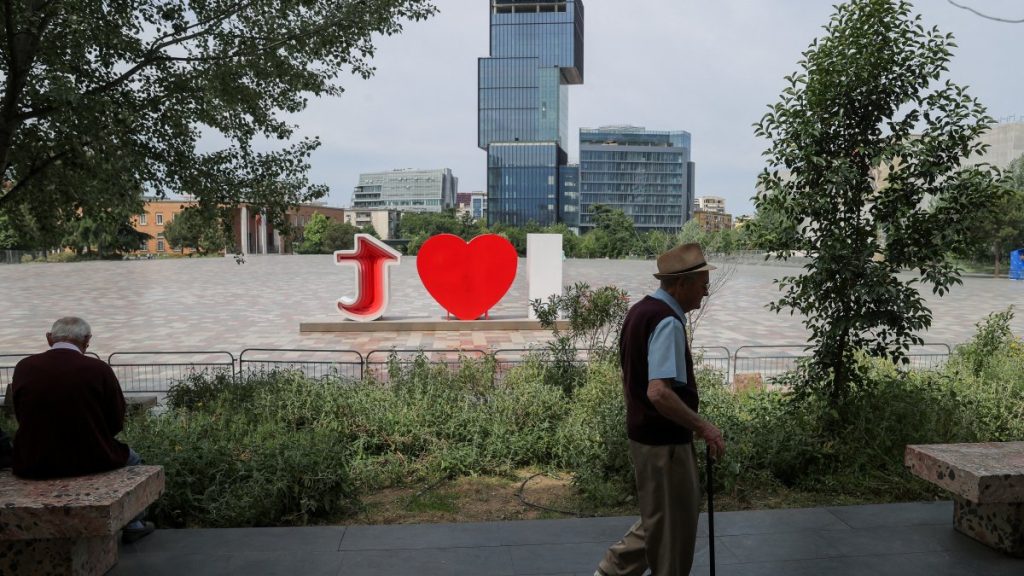President Recep Tayyip Erdoğan on Friday is attending the sixth meeting of the European Political Community (EPC) to address the continent’s most pressing issues, including the war in Ukraine and migration.
The theme of the summit in Tirana is “New Europe in a new world: unity – cooperation – joint action.”
The EPC forum is French President Emmanuel Macron’s brainchild, and was backed by former German Chancellor Olaf Scholz, aiming to boost security and prosperity across the continent. But critics claimed it was an attempt by them to put the brakes on EU enlargement.
The 2022 inaugural summit involved the EU’s 27 member countries, aspiring partners in the Balkans and Eastern Europe, as well as neighbors like the U.K. – the only country to have left the EU – and Türkiye.
Russia is the one major European power not invited, along with Belarus, its neighbor and supporter in the war with Ukraine.
The next EPC meeting will take place in Denmark later this year.
Ukrainian President Volodymyr Zelenskyy is among the leaders invited to the event. On the eve of the summit, Russian President Vladimir Putin rejected a call by Zelenskyy to meet face to face in Türkiye on Thursday to try to secure a cease-fire with Moscow. Erdoğan and Zelenskyy met in Ankara and had talks about the latest developments.
In a statement on X, Zelenskyy said, “We had a very meaningful conversation at the highest level. This is a very important signal — not only politically, but also personally, in terms of our friendship and Türkiye’s multifaceted support for Ukraine.”
New geopolitical order
Erdoğan, on the same day, said that a new geopolitical order is taking shape, placing Türkiye at its center amid shifting global dynamics and changing regional power balances.
“Our world is changing, the old order is crumbling, a brand-new equation is being established in our region with Türkiye at its center,” Erdoğan said at the Organization Academy Leadership School in Ankara.
Türkiye’s role in EU security
With U.S. President Donald Trump seeking a shift in trans-Atlantic relations, the European Union weighs a joint defense alliance instead of relying on U.S. military support. Although Washington is the leading force of NATO, the new president’s remarks that it was up to Europe, not the United States, to provide security guarantees to Ukraine further raised concerns.
The EU, which seeks to share its topics of discussion and planned steps with NATO’s leading countries in defense, has created a platform for the exchange of ideas under the name of “like-minded countries” for the security of the continent.
Türkiye, both a candidate country for the EU and a NATO ally, has also joined the platform, boasting defense industry breakthroughs in recent years.
Foreign Minister Hakan Fidan emphasized Thursday that Türkiye will continue to play a crucial role in European security.
“As NATO’s second-largest military, Türkiye will continue to play a crucial role in the European security architecture through its military capabilities and defense industry infrastructure,” Fidan told a press conference following a NATO foreign ministers meeting in Antalya, southern Türkiye.
He emphasized that the discussions in Antalya reaffirmed NATO’s leading role in the Euro-Atlantic security architecture, adding that Europe’s security cannot be considered separately from NATO.
Fidan emphasized NATO’s strong determination to maintain the spirit of unity and solidarity, which has been its most valuable asset to date. He said efforts must continue to transform this determination into concrete actions.
He also noted that the EU has recently announced several defense initiatives, which will only be effective if they are open to all NATO members.
“In such a period, our expectation is that all steps in the field of security should be taken without unnecessary repetition, divergence or detachment from NATO,” Fidan said, adding that they raised these issues in both alliance-wide meetings and bilateral talks.
He added that Trump’s statements about the U.S. withdrawing from certain aspects of Europe’s security architecture, as well as his suggestions for Europeans to become more self-sufficient and share defense burdens more equally, were well received at the meetings.
He pointed out that European countries have launched a program to reduce their reliance on the U.S. in defense, focusing on financial aspects such as constitutional changes in Germany, policy shifts in EU institutions and the removal of debt limits in national budgets.
Fidan emphasized that one of Türkiye’s strategic political priorities has been to foster its role both from the EU perspective and within NATO.


